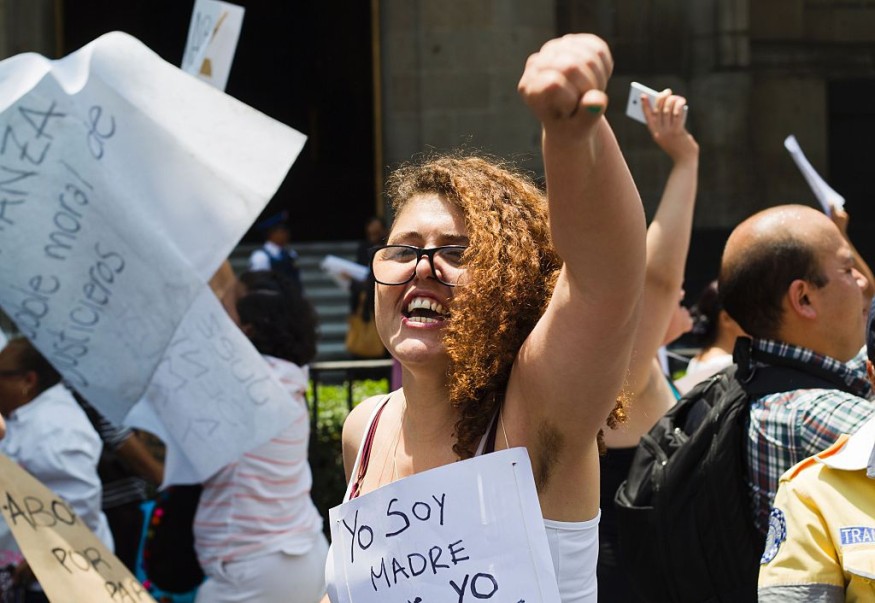Mexico's Supreme Court Ruled Decriminalizing Abortion; Chief Justice Says Historic Day for All Mexican Women

Mexico's Supreme Court voted on Tuesday the decriminalization of abortion in the country, which could lead to the legalization of the health procedure in the Catholic country.
Eight of the 11 justices ruled to revoke a law in the state of Coahuila that punished women with up to three years in prison for having an abortion, without an exemption for cases of rape, according to an NPR report. The remaining judges had joined the vote on Tuesday, saying that such laws are unconstitutional.
Supreme Court Chief Justice Arturo Zaldivar said that it was a historic day for the rights of all Mexican women.
The new ruling sets a precedent that would prompt judges across Mexico to vote over similar rulings and expand early abortions for millions of women in the country's 32 states.
Meanwhile, the recent decision of the top court was seen to make an impact on the entire Latin American region.
Abortion In Latin America
Melissa Ayala, coordinator of litigation for the Mexican feminist organization GIRE, noted that Mexico will not be the only one to be affected by the decision, according to The Washington Post report.
In Latin America, only four countries had allowed abortion under all circumstances in the early stages of pregnancy. The countries were Argentina, Cuba, Guyana, and Uruguay.
However, the Catholic Church had expressed its concern in an editorial in its magazine Desde la Fe. It addressed the judges' ruling and said not to create a huge setback just to please an ideology in vogue or due to peer pressure.
The church was not the only one to oppose the ruling. The conservative National Action Party had also rejected the court's decision. The party released a statement regarding the matter and said that they are in favor of defending life from the moment of conception until natural death.
However, politicians do not have a say when it comes to the abortion decision as Mexican law states that supreme court ruling supported by at least eight justices surpasses state laws.
Activists are now planning to push state authorities to free women from serving prison time for having had an abortion.
Advocates also cited the recent Texas abortion law, saying that they hoped their victory would signal American women to challenge the ruling regarding the health procedure, according to the New York Times report.
President Andres Manuel Lopez Obrador had yet to comment on the matter. He was known to have faced criticisms for his response to the women's movement. Lopez Obrador has remained noncommittal on abortion, being a devout Christian.
Paulina Creuheras González, head of analysis and political risk at Integralia, said that the Supreme Court justice was setting the tone for all local criminal codes to be amended.
Other countries in Latin America, such as El Salvador, still prohibits abortion completely, without any exception for cases of rape or incest.
The penalties for those caught breaking the law range from two to 50 years, according to The Conversation report.
In addition, women who had suffered miscarriages and stillbirths can be prosecuted for murder.
READ MORE : Chile's Government Gave Out Flawed Birth Control Pills Which Caused Dozens of Unplanned Pregnancies
This article is owned by Latin Post
Written by Mary Webber
WATCH: Mexico Supreme Court rules abortion criminalization unconstitutional - from FOX 7 Austin
Subscribe to Latin Post!
Sign up for our free newsletter for the Latest coverage!
© 2026 Latin Post. All rights reserved. Do not reproduce without permission.














